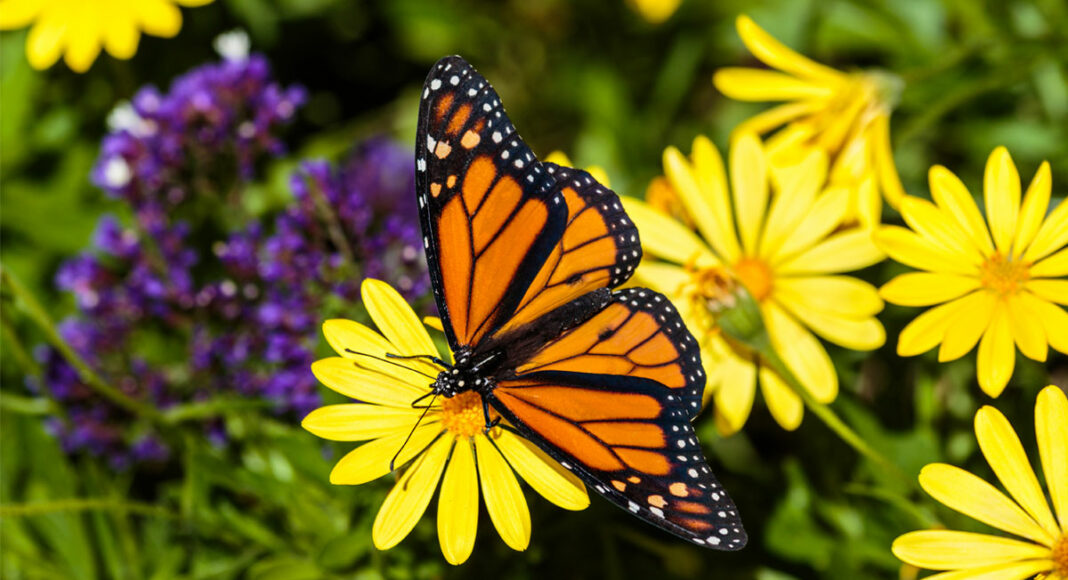U.S. Rep. Jimmy Panetta (D-Carmel Valley) teamed up with Sen. Jeff Merkley (D-Oregon) to reintroduce two pieces of legislation that could help recover the Western monarch butterfly migration.
The western population of the iconic butterfly declined by 99% over the past 30 years. Numbers continue to dive. Official counts recorded less than 2,000 monarchs overwintering in California this year, compared to tens of thousands the past few years and millions in the 1990s.
Experts say climate change, pesticide-use and habitat-loss all contribute to the drop. The public can help by growing native plants, avoiding pesticides and contributing to community science initiatives like the Western Monarch Mystery Challenge. Now, the two newly introduced pieces of legislation could fund larger-scale habitat restoration programs.
Roads to recovery
The Monarch Actions, Recovery, and Conservation of Habitat (MONARCH) Act would allot $125 million to pollinator conservation projects over five years. Some $62.5 million of the funding would go to the Western Monarch Butterfly Conservation Plan, designed by the Western Association of Fish and Wildlife Agencies in 2019.
The second piece of legislation, the Monarch and Pollinator Highway Act, would establish a federal grant program for state transportation departments and Native American tribes. The funding could support roadside vegetation management and the planting of native species.
Both pieces of bipartisan legislation were introduced in the House and Senate.
Saving the species
If passed, the bills could help restore the number of migrating monarchs. While West Coast communities might still see small numbers of resident monarchs, scientists worry we are losing the migration. Migrating keeps the species healthy. It allows the butterflies to weed-out diseases and find new food sources—both necessary behaviors for large, resilient populations.
“Recovering their populations by conserving habitat before they go extinct is crucial,” said UCSC Professor of Ecology and Evolutionary Biology A. Marm Kilpatrick in a press release on Wednesday. “Conserving habitat through the MONARCH Act of 2021 would bring us one step closer to protecting important ecosystems for western monarchs, and ensuing the valuable ecosystem services the habitat and the species provide.”













